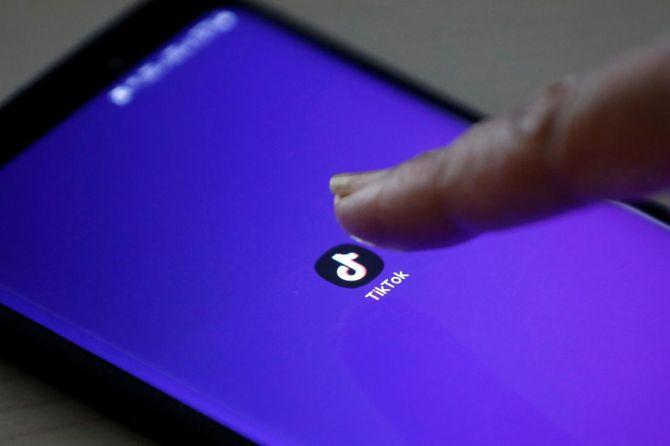 | « Back to article | Print this article |
Post elections, the company has been making frequent visits to various ministries, including the IT ministry, commerce ministry, as well as different agencies to get the hang of things in the administration.

Following in the footsteps of Facebook and Twitter, Chinese internet technology giant and TikTok owner Bytedance is trying to make deep inroads into the government space by making efforts to bring the Centre on its platform to promote various initiatives.
Apart from continuing dialogue with the government independently as well as via industry bodies such as Internet and Mobile Association of India, the company is trying to work with the Centre on various initiatives on tourism as well as health programmes and has put its campaigns on short video service app TikTok.
In a short span, the Chinese app has captured a huge chunk of the Indian market.
Bytedance has close to 300 million users in India with more than 200 million on TikTok itself.
The world’s most valuable tech start-up Bytedance, valued at $75 billion, also owns Helo, an app that lets users create and share content in their own language, making it popular in the tier-2 and tier-3 cities.
Meeting stakeholders
Post elections, the company has been making frequent visits to various ministries, including the IT ministry, commerce ministry, as well as different agencies to get the hang of things in the administration.
The idea is to educate stakeholders about TikTok and other products to avoid situations such as the ban it was put under in April.
“As we are still in our early stages of growth in India, we are meeting relevant stakeholders on a regular basis to educate them about our products and safety measures.
"We also take this opportunity to share with them Bytedance’s vision,” said Helena Lersch, director, global public policy, Bytedance.
Aggressive hiring
Lersch joined Bytedance after spending over six years as a public policy professional in Google and Instagram.
Now, TikTok has been aggressively hiring people who have worked with Google, Facebook, and Uber in India, especially in the policy space.
The idea is to work with people who are familiar with the way the government works in India.
Several people Business Standard spoke to said the general mistrust against Chinese companies has caused some weariness in government corridors.
The company is now making an effort to bridge the differences and collaborating with governments both at national and state levels, something that Google and Facebook have managed to do well.
Facebook has partnered the likes of women and child development ministry, and collaborated with ministries on issues like education and disaster response.
The US social media giant has run these “soft programmes”, helping it create goodwill and collaborate closely with the brass in the government.
Google India has had a similar trajectory, partnering the government on initiatives like its virtual tours of historical monuments in partnership with the Archaeological Survey of India and its internet access initiatives, a partnership it has with an arm under the railway ministry.
The Centre and states actively use Twitter to run campaigns and communicate with the young in the country.
TikTok is trying to pull a leaf out of the same playbook.
What works in its favour is the huge number of young people who make short videos on the platform.
Recently, on International Yoga Day, it ran a campaign to raise awareness around #YogaDay2019 on TikTok.
“This initiative received a massive response. We’ve also got Kerala Tourism on board for the India edition of our global campaign #TikTokTravel.
"Kerala Tourism made its debut on TikTok earlier this week,” Lersch said.
The company currently has more than 500 employees and aims to double the count by the end of 2019.
It wants to invest the billion dollars it has set aside for India in various areas, including forging content partnerships across platforms, building tech infrastructure and expanding its workforce.
Courting controversy
The company is continuously enhancing its existing measures and introducing additional technical and moderation processes.
It has also placed an India-based grievance officer who can coordinate directly with law enforcement authorities and is providing additional information on a case-to-case basis.
In April, TikTok was banned by the Madras high court for a week, following which Apple and Google pulled it off their play stores.
During one of the hearings, TikTok told the court the ban was causing it to lose $ 500,000 each day.
Last year, Indonesia had banned TikTok temporarily for “inappropriate content”.
But, this year, TikTok has partnered the country for a campaign on tourism, a model it had earlier said it will replicate in other countries as well.
Photograph: Danish Siddiqui/Reuters